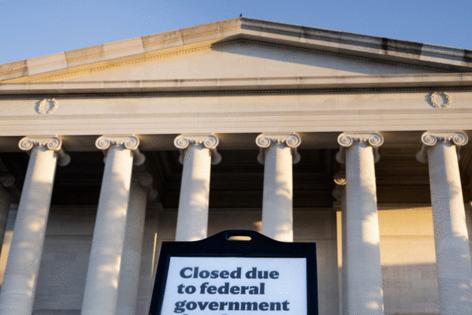Trump court battles must continue during shutdown, judges rule
Published in Political News
WASHINGTON — U.S. judges have rejected the Justice Department’s requests to delay more than a dozen legal challenges to President Donald Trump’s policies as the government shutdown enters its second week.
The department has been winding down work on some civil cases since the shutdown began Oct. 1. Most judges have approved delays. But some have denied requests, deeming the cases too urgent and important, and have ordered government lawyers to keep working on disputes over deportations, funding, firings and National Guard deployments, court records show.
Judges occasionally kept cases moving during past shutdowns, but this time there is a larger volume of fast-moving lawsuits challenging Trump’s government overhaul and bid to expand presidential power. Tensions also are already high between the executive branch and the judiciary. Trump and his allies have publicly blasted judges for blocking parts of his agenda, while judges have denounced attacks and expressed concerns about the administration’s transparency and compliance in court.
The Justice Department has little recourse when rebuffed on delay requests, because judges have broad discretion to control scheduling, said Paul Grimm, a former federal judge in Maryland. If judges no longer believe they can trust the administration generally to act in good faith, he said, the lawyers asking for delays could be at a disadvantage.
“Your credibility with the court takes a hit,” said Grimm, an appointee of former President Barack Obama who has served as director of the Bolch Judicial Institute at Duke Law School since he stepped down in 2022. Grimm signed a friend-of-court brief earlier this year supporting his former colleagues against the administration’s unsuccessful challenge to how the Maryland court handles immigration cases.
A Justice Department spokesperson declined to comment.
U.S. law carves out exceptions for employees to work without pay during a shutdown, including for matters “involving the safety of human life or the protection of property.” Under the Justice Department’s shutdown plan, if judges order lawyers to meet deadlines or appear in court, that is “express legal authorization” to keep working.
Courts are open
Federal courts remain open. The judiciary’s administrative office has said it has enough money in reserves to fully fund operations and avoid furloughing some staff through at least Oct. 17.
An estimated 750,000 federal employees are expected to be furloughed during the shutdown, according to the Congressional Budget Office. The Justice Department has said in court papers that even if lawyers are able to work, the agencies they represent may not have staff available to share information or coordinate.
Some courts announced blanket extensions for the government’s civil cases to cut down on extra work for the Justice Department and judges. That happened in Washington, which has handled the largest proportion of administration policy fights to date. The chief judge entered a standing order pausing deadlines unless plaintiffs are asking for immediate court action.
Judges in Washington still have authority to manage cases as they see fit, though. One judge entered an order on Wednesday setting deadlines in litigation over Trump’s voting-related policies. She wrote that “it is in the interest of justice for this case to proceed without undue delay.” Another denied the government’s request to halt deadlines in a fight over Trump’s deployment of National Guard troops to the city.
A San Francisco judge wrote that a case about expiring legal protections for migrants fleeing unstable countries fell under a shutdown exception for matters involving “safety of human life.” A Maryland judge refused to pause a high-profile deportation fight involving Salvadoran migrant Kilmar Abrego Garcia, citing “important fundamental questions” at stake.
‘Time-Sensitive’
In Rhode Island, judges handling cases about funding conditions and agency firings rejected delays on the grounds that “the court is required to continue its constitutional functions.” A judge in Seattle maintained deadlines in a lawsuit about funding cuts for school-based mental health services because the states that sued are seeking “time-sensitive” relief.
Other judges didn’t explain why they denied the government’s requests. In a case in San Francisco challenging agency layoffs, the judge posted a copy of the government’s request with a “DENIED” stamp on the first page. That fight dates back to April, but recently was joined with a newer lawsuit challenging the Trump administration’s plans to fire workers during the shutdown.
On Oct. 2, a Boston federal judge handling a federal funding fight with Harvard University issued a one-line order extending a deadline until Oct. 10 but declined to indefinitely pause it. With the clock ticking down and no spending deal in sight, the Justice Department on Wednesday renewed its request.
©2025 Bloomberg L.P. Visit bloomberg.com. Distributed by Tribune Content Agency, LLC.
























































Comments